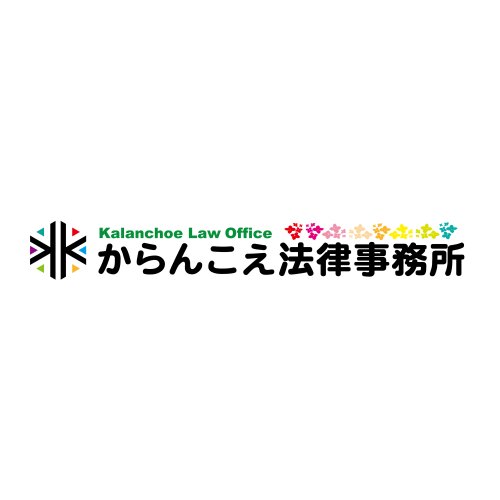Best Juvenile Law Lawyers in Sendai
Share your needs with us, get contacted by law firms.
Free. Takes 2 min.
List of the best lawyers in Sendai, Japan
About Juvenile Law in Sendai, Japan
Juvenile law in Sendai, Japan is a branch of law that deals with offenses and challenges involving minors under the age of 20. It is designed to protect the welfare and development of young people while addressing their accountability when they commit offenses. The juvenile justice system in Japan, including Sendai, primarily operates through family courts, which handle cases involving delinquency, child protection, and prevention of further anti-social behavior. The emphasis in juvenile law is on rehabilitation and education instead of punitive measures, aiming to help young people reintegrate into society and avoid future legal trouble.
Why You May Need a Lawyer
Navigating juvenile law can be complex and emotionally challenging for both minors and their families. Common situations where legal assistance may be needed include:
- When a minor is suspected of committing a criminal offense, such as theft, assault, or vandalism.
- When a minor is identified as being in need of protection due to neglect, abuse, or problematic family circumstances.
- During family court hearings regarding guardianship, custody, or welfare decisions.
- If law enforcement wishes to interview or detain a minor.
- To understand the rights of the minor during police or school investigations.
- When navigating procedures for expunging or sealing juvenile records.
- If a minor with mental health concerns becomes the subject of protective measures.
A lawyer with experience in juvenile law can explain the legal process, protect the minor’s rights, represent them in court, and ensure that the focus remains on rehabilitation instead of punishment.
Local Laws Overview
In Sendai, juvenile law closely follows national Japanese legislation, particularly the Juvenile Act (Shonen Ho). Key aspects include:
- Age of Majority: Individuals under 20 years old are generally considered juveniles for the purpose of the law.
- Family Court: Most juvenile cases are handled by the Family Court, which can decide on measures such as probation, placement in juvenile training schools, or return to guardians with supervision.
- Emphasis on Rehabilitation: The system is designed to provide educational and rehabilitative measures rather than criminal penalties.
- Police Referral: Police are required to refer most under-20 offenders to the Family Court, rather than handling the case through criminal prosecution.
- Protection Cases: The court can act when a child is at risk due to neglect, abuse, or other family issues, sometimes removing the child from a harmful environment.
- Confidentiality: Juvenile cases are generally not made public to protect the young person’s identity and future prospects.
Specific regulations and welfare services may vary locally in Sendai, but these key principles are universally applied throughout Japan.
Frequently Asked Questions
What is considered a juvenile under Sendai and Japanese law?
A juvenile is anyone under the age of 20. For certain legal procedures, such as specific criminal offenses, different age brackets may apply for further distinction.
What happens when a juvenile is arrested in Sendai?
Instead of traditional criminal processing, the police refer most cases involving juveniles to the Family Court. Young offenders may be detained in a juvenile classification home prior to court hearings.
Do parents or guardians have to be present during police questioning?
Yes, minors have certain rights during questioning, and parents or guardians are generally informed and allowed to accompany their child.
Can a juvenile be sent to prison?
Ordinarily, juveniles are not sent to adult prisons. The Family Court may order placement in a juvenile training school or a children’s self-reliance support facility, depending on the circumstances.
Are juvenile records publicly disclosed?
No, juvenile records are confidential, and there are protections to prevent unnecessary disclosure that could affect the minor’s future.
What is the role of the Family Court in juvenile cases?
The Family Court investigates each case and determines the most appropriate outcome, focusing on rehabilitation, protection, and family guidance rather than punishment.
Does a juvenile need a lawyer?
While it is not mandatory, having a lawyer offers vital legal protection, ensures the minor’s rights are upheld, and helps families navigate complex legal processes.
Can juveniles be held criminally responsible in serious cases?
In very serious cases, such as murder or serious injury, a juvenile aged 16 or over might be tried as an adult, but this is rare and subject to Family Court decision and special legal procedures.
How long does a juvenile record last?
Juvenile records are not typically disclosed or carried into adulthood, especially if the person does not reoffend, but certain serious convictions may have longer-lasting effects.
What if a child is being abused or neglected?
Child guidance centers and legal authorities in Sendai can intervene to protect the child, possibly leading to protective measures like temporary removal from the home or supportive services for the family.
Additional Resources
If you or your family needs support or has questions regarding juvenile law in Sendai, consider reaching out to:
- Sendai Family Court: Handles juvenile protection and delinquency cases.
- Miyagi Prefecture Child Guidance Center: Provides assistance for children needing protection or counseling.
- Sendai City Welfare Office: Offers social services and support to families and minors in need.
- Japan Legal Support Center (Houterasu): Provides free or low-cost legal consultations, including juvenile law matters.
- Local Bar Association: Can refer you to lawyers experienced in juvenile law cases.
Next Steps
If you or someone you care about is facing juvenile legal issues in Sendai, Japan, consider the following steps:
- Contact a lawyer who specializes in juvenile law for a detailed consultation.
- Gather all relevant documents and information about the case or situation.
- Reach out to local authorities or child protection services if immediate welfare concerns exist.
- Prepare questions and discuss all options during your consultation to ensure you understand possible outcomes.
- Follow legal and professional guidance closely to protect the interests and rights of the minor involved.
Early action, professional support, and understanding your legal rights are the best ways to secure the welfare and future of a young person involved in the juvenile justice system.
Lawzana helps you find the best lawyers and law firms in Sendai through a curated and pre-screened list of qualified legal professionals. Our platform offers rankings and detailed profiles of attorneys and law firms, allowing you to compare based on practice areas, including Juvenile Law, experience, and client feedback.
Each profile includes a description of the firm's areas of practice, client reviews, team members and partners, year of establishment, spoken languages, office locations, contact information, social media presence, and any published articles or resources. Most firms on our platform speak English and are experienced in both local and international legal matters.
Get a quote from top-rated law firms in Sendai, Japan — quickly, securely, and without unnecessary hassle.
Disclaimer:
The information provided on this page is for general informational purposes only and does not constitute legal advice. While we strive to ensure the accuracy and relevance of the content, legal information may change over time, and interpretations of the law can vary. You should always consult with a qualified legal professional for advice specific to your situation.
We disclaim all liability for actions taken or not taken based on the content of this page. If you believe any information is incorrect or outdated, please contact us, and we will review and update it where appropriate.









